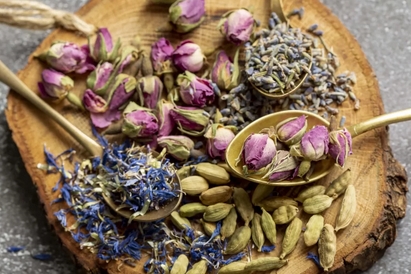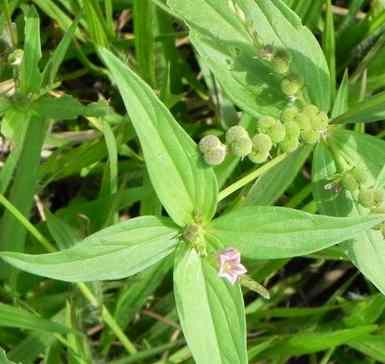
support@yorubalibrary.com
+2348073529208, 07038599574

The Yoruba people of Nigeria have a long-standing tradition of healing practices deeply rooted in their culture and spirituality. Yoruba traditional healers, known as "Babalawos" (male) and "Iyalawos" (female), play a crucial role in the community, providing holistic health care through a combination of herbal medicine, divination, and spiritual rituals. This article explores the practices and significance of Yoruba traditional healers.
The Role of Yoruba Traditional Healers
Yoruba traditional healers are more than just medical practitioners; they are custodians of ancient knowledge and spiritual guides. Their practices are based on the belief that health is a balance of physical, spiritual, and emotional well-being. They address various ailments through an integrative approach that combines herbal remedies, spiritual healing, and divination.
Herbal Medicine
Herbal medicine is a cornerstone of Yoruba traditional healing. Healers use an extensive range of plants, roots, and herbs known for their medicinal properties. These natural ingredients are prepared in various forms, such as teas, powders, and poultices, tailored to treat specific ailments.
For instance, the "Agbo" is a popular herbal concoction used to detoxify the body and treat fevers, digestive issues, and other common illnesses. Each plant or herb is carefully selected based on its therapeutic properties and the ailment being treated.
Divination
Divination is another critical aspect of Yoruba healing practices. Healers use divination to diagnose the root cause of illnesses, which often have spiritual or emotional origins. The "Ifa" divination system, involving the casting of sacred palm nuts or cowrie shells, is used to communicate with the divine and gain insights into the patient's condition.
Through Ifa divination, the healer can determine the appropriate course of treatment, whether it involves specific herbal remedies, rituals, or lifestyle changes. This process ensures a holistic approach to healing, addressing not just the symptoms but the underlying causes of illness.
Spiritual Healing
Spiritual healing practices in Yoruba culture are intertwined with religious beliefs. Traditional healers often perform rituals and ceremonies to appease deities and ancestors, seeking their intervention in the healing process. These rituals can include offerings, prayers, and the use of sacred objects.
Healers may also provide spiritual protection and cleansing for individuals suffering from afflictions believed to be caused by malevolent forces or negative energies. This aspect of healing reinforces the importance of maintaining spiritual balance and harmony.
Training and Knowledge Transmission
The knowledge and skills of Yoruba traditional healers are typically passed down through generations. Apprenticeship is the primary mode of training, where aspiring healers learn directly from experienced practitioners. This hands-on training involves learning about medicinal plants, divination techniques, and the performance of spiritual rituals.
In addition to practical training, apprentices are taught the ethical and moral responsibilities of being a healer. This includes a deep respect for the natural world, the importance of confidentiality, and a commitment to the well-being of their community.
The Importance of Yoruba Traditional Healers in Modern Times
Despite the advances in modern medicine, Yoruba traditional healers remain highly respected and sought after, particularly in rural areas where access to conventional healthcare may be limited. They offer affordable and culturally relevant healthcare solutions that are deeply embedded in the community's way of life.
Integration with Modern Medicine
There is a growing recognition of the value of traditional healing practices, leading to increased collaboration between traditional healers and modern medical practitioners. This integration aims to provide comprehensive healthcare that respects cultural practices while benefiting from scientific advancements.
For example, some hospitals in Nigeria incorporate traditional herbal remedies alongside conventional treatments, offering patients a holistic approach to health and wellness. This synergy enhances the effectiveness of healthcare delivery and ensures that cultural heritage is preserved.
Challenges and Preservation
Yoruba traditional healers face challenges such as the commercialization of herbal medicine, loss of biodiversity, and the influence of modern lifestyles. However, efforts are being made to document and preserve this invaluable knowledge. Organizations and researchers are working with traditional healers to compile medicinal plant databases and promote sustainable harvesting practices.
Additionally, initiatives to educate younger generations about traditional healing practices are crucial for the preservation and continuity of this cultural heritage.
Conclusion
Yoruba traditional healers are integral to the cultural and spiritual fabric of the Yoruba community. Their practices, which combine herbal medicine, divination, and spiritual healing, offer a holistic approach to health and wellness. As custodians of ancient knowledge, these healers play a vital role in providing accessible and culturally resonant healthcare. Embracing and preserving their practices ensures that the rich heritage of Yoruba traditional healing continues to benefit future generations.

Know more about the Yoruba traditional uses and he…

Learn about Ewe Aran, a potent Yoruba medicinal le…